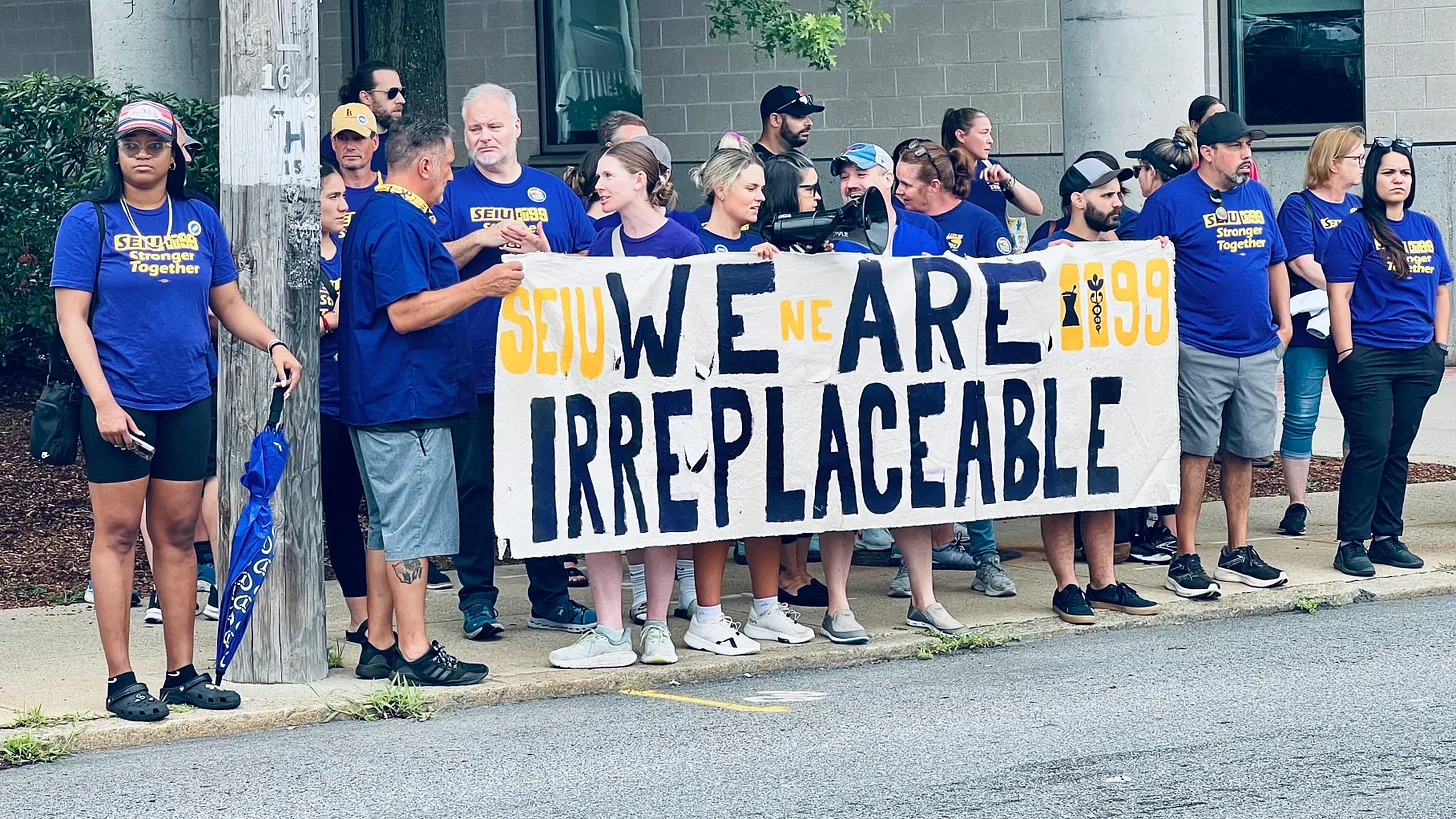In the wake of the bitter Butler Hospital strike, solidarity needed for future success
By Alexander Castro, Rhode Island Current
Unions across Brown University and Brown University Health have banded together to form a new labor federation with about 7,000 members total.
In a Monday announcement, the Brown University Labor Council (BULC) branded itself as “the first effort at creating a cross-sector labor organization” since the Ivy League school partnered with Lifespan to rebrand as Brown University Health last summer.
The council’s president, Maddock Thomas, said in a statement that it will work to unify Brown and Brown Health workers across any respective labor campaigns, contract talks, and picket lines. Beginning Sept. 15, the council plans to hold a series of educational events on labor organization to help workers get involved in their unions and organize their workplaces.
“In this time of overlapping crises, the voice of labor is crucial,” Thomas wrote. “A strong labor movement means that working people will have a seat at the table as we work to solve these problems. The BULC allows us to build a cohesive labor movement for workers affiliated with Brown across all sectors and workplaces.”
Labor organizations in the council include:
- Brown chapter of American Association of University Professors
- Brown University Postdoc Labor Organization
- Brown Health and Care New England units of Committee of Interns and Residents
- Graduate Labor Organization
- Brown Student Labor Alliance
- Transdev and Rhode Island Hospital units of Teamsters Local 251
- United Nurses and Allied Professionals (UNAP) Local 5098
- Library and dining units of United Service and Allied Workers of Rhode Island


















